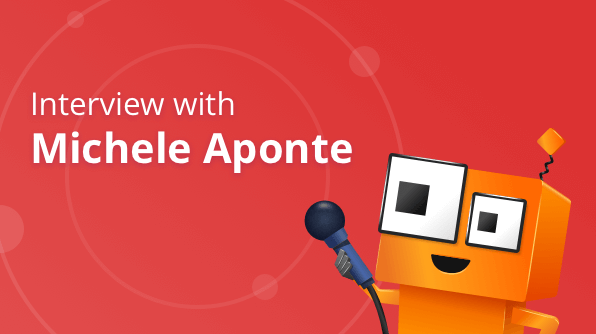The following is a short interview with Succinctly series author Michele Aponte, whose new book, Using .NET Core, Docker, and Kubernetes Succinctly, was published recently. You can download this book from our ebook portal.

What should people know about the subject of your book? Why is it important?
When we talk about the hosting of our applications, today we have two options: choose a proprietary infrastructure or choose a hosting provider. When the applications grow, this choice can make the difference between the success or failure of our solution, and migrating to a more sustainable infrastructure can be very expensive. Today, the use of containers permits you to move your application from an on-premise solution to a cloud provider in a very simple way, and if you choose Kubernetes as a container orchestrator, you can run your application in your infrastructure and in the major cloud providers with the same product.
Moreover, if you have a microservices architecture (because you need it and not because it is cool), a container technology like Docker and a container orchestrator like Kubernetes are the only way to sustain your solution.
The good news is that with .NET Core, the latest Windows Server operating system, and Azure, Microsoft programmers have all they need to take advantage of these technologies.
When did you first become interested in this subject?
In my company, we help our customers migrate their old solutions to new technologies. In many situations, this means creating a migration path that requires a one-step-at-a-time procedure.
Some years ago, our customers asked us how they could reimagine their infrastructure with “the cloud in mind.” In many cases, .NET Core, Docker, and Kubernetes was the right choice. Together, we started to experiment with these technologies to see if they met these customers’ requirements, and it was love at first sight!
By writing this e-book, did you learn anything new yourself?
In our work, there is always something to learn. During the writing of the book, I could experiment with some features of Docker and Kubernetes that I had never tried before. I explored more in depth how these technologies work behind the scenes in order to be able to explain it to the readers. As Albert Einstein said, “if you can’t explain it in a simple way, you haven’t really understood it.”
How will this subject change over the next few years?
Docker and Kubernetes are not recent technologies, but in recent years they’ve had success because they solve problems that today are very important. In the informatic world, one year is a geologic era and it is impossible to predict what will happen. But big companies like Microsoft, Google, and Amazon are investing a lot in this direction and this means that containers and their orchestration are a trend that will not easily pass.
Do you see the subject as part of a larger trend in software development?
Absolutely yes! Working, for example, with virtual machines creates many problems to manage for modern applications. It is very difficult to imagine, for example, the Netflix or Amazon infrastructure without containers that support all the microservices they use. Anyway, containers have many advantages over other technologies for many common situations. I am confident that, when we overcome the fear of change and the technical debt to learn these technologies, many companies will adopt them.
What other books or resources on this topic do you recommend?
In the Succinctly series, there are many books about these topics. For .NET Core and ASP.NET Core, you can read ASP.NET Core 2 Succinctly by Simone Chiaretta and Ugo Lattanzi, whom I personally know and who are excellent technicians. For Docker and Kubernetes, there are specific dedicated books in the Succinctly series.
The limit of books and informatics is time: it is very difficult to find updated books. My approach to learning new technology is to experiment with them and to participate at conferences and meetups about a specific topic: the real experience of those who work on it is
irreplaceable.
Who are your role models in the developer world?
As Microsoft MVP from 2011 to 2017, I had the luck to get to know many incredible developers in the Microsoft world. Andrea Saltarello (@andysal74), Daniele Bocchicchio (@dbochicchio), Mauro Servienti (@mauroservienti), Alessandro Melchiorri (@amelchiori), Raffaele Rialdi (@raffaeler), and Giorgio Garcia Agreda (@giogarag) are just some of names that influenced my professional life.
They are great technicians and professionals, but mainly they passed on to me the passion for sharing as a tool for professional growth.
How do you stay up-to-date on industry news?
I love to take part in conferences and meetups about technology. Talking with people and comparing their opinions is the best way to explore this world. I follow some technical blogs and read articles on the internet. Normally, I discover the most interesting articles from social networks and collect the links in a list that I read in the evening and on the weekend to stay up to date.
Do you have a blog page or a website where people can find you?
Yes, on my company’s website (www.blexin.com) you can find the events section, where we publish all the events we take part in as speakers and as sponsors. There is also a blog section where each member of the team writes technical articles. We publish a new article each Wednesday.
If you enjoyed this post, we think you’ll also enjoy:
[ebook] Docker Succinctly
[ebook] Kubernetes Succinctly
[blog post] Interview with Kubernetes Succinctly Authors Rahul Rai and Tarun Pabbi
